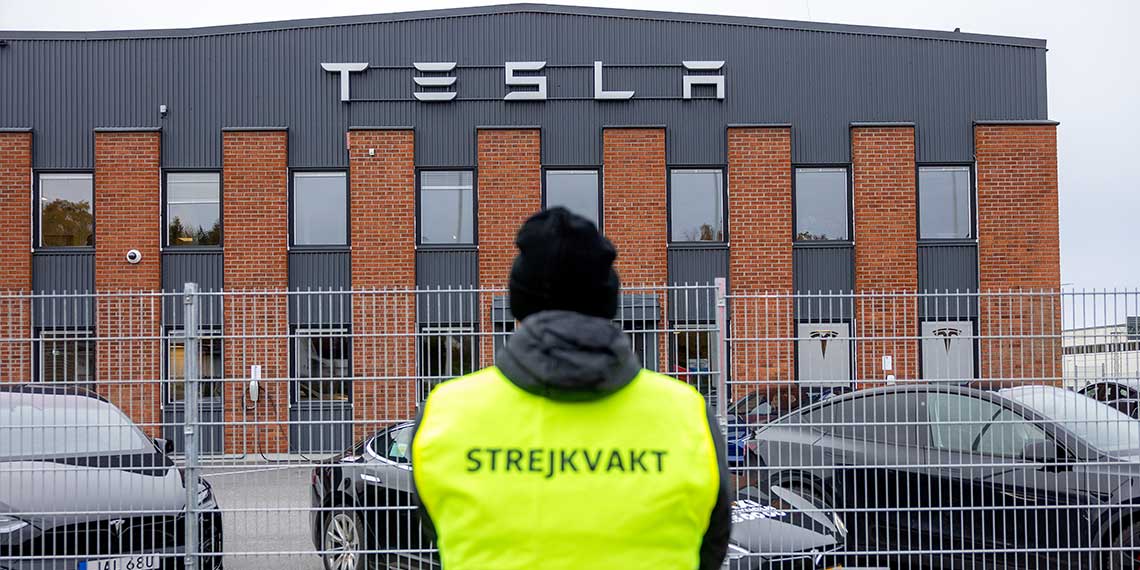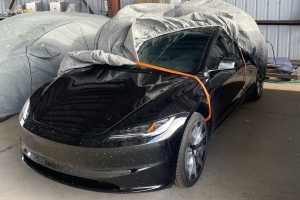- 💼 Tesla Sweden is maintaining its stance against collective agreements amid IF Metall’s strike.
- 💬 Questions arise regarding the legitimacy of IF Metall’s actions as Tesla employees show limited support for the strike.
- 📊 A report from Sweden’s Mediation Institute reveals that over 90% of Tesla’s 300 workers in Sweden have chosen to continue working.
- ⚡ IF Metall has sought support from other unions in Sweden and Nordic countries, resulting in sympathy strikes affecting employees from other companies and Tesla customers in Sweden.
- 🛠️ Tesla customers in Sweden have faced challenges in getting their cars serviced due to the strike, prompting temporary easing of restrictions on Tesla Sweden’s workshops by IF Metall.
- 🚫 A company supporting IF Metall through a sympathy strike lost its contract with Tesla, resulting in the loss of 20 jobs.
As the automotive industry evolves and adapts to changing market dynamics, labor disputes and strikes occasionally disrupt operations, shedding light on broader issues of labor rights, corporate policies, and union negotiations. The recent standoff between Tesla Sweden and the IF Metall union encapsulates the complexities and challenges inherent in labor relations within the automotive sector. In this blog post, we’ll delve into the intricacies of the dispute, analyze its implications, and explore potential pathways for resolution.
Understanding the Standoff
- Tesla’s Stance: Tesla Sweden has taken a firm stance against collective agreements amidst the ongoing strike initiated by IF Metall. This position underscores Tesla’s commitment to maintaining autonomy over its labor practices and resisting external pressure to conform to traditional collective bargaining norms.
- Employee Support: Questions have arisen regarding the legitimacy of IF Metall’s actions, as Tesla employees in Sweden have shown limited support for the strike. According to a report from Sweden’s Mediation Institute, over 90% of Tesla’s 300 workers in Sweden have opted to continue working, signaling a lack of widespread endorsement for the union’s demands.
Impacts and Ramifications
- Sympathy Strikes: IF Metall’s efforts to garner support from other unions in Sweden and Nordic countries have resulted in sympathy strikes affecting employees from other companies and Tesla customers in Sweden. These collateral consequences highlight the interconnectedness of labor movements within the region and the potential ripple effects of industrial action.
- Customer Disruptions: Tesla customers in Sweden have encountered challenges in accessing car servicing facilities due to the strike, prompting temporary easing of restrictions on Tesla Sweden’s workshops by IF Metall. The disruption in service operations not only inconveniences customers but also underscores the broader implications of labor disputes on consumer experiences and brand reputation.
- Contract Losses: The fallout from the strike extends beyond Tesla’s operations, with a company supporting IF Metall through a sympathy strike losing its contract with Tesla. This development has resulted in the loss of 20 jobs, highlighting the real-world consequences of labor disputes on both companies and workers.
Pathways to Resolution
- Dialogue and Negotiation: A constructive approach to resolving the standoff entails engaging in meaningful dialogue and negotiation between Tesla Sweden and IF Metall. Both parties must identify common ground, address grievances, and explore mutually beneficial solutions that uphold the interests of employees while safeguarding the company’s operational integrity.
- Mediation and Arbitration: In cases where direct negotiations prove challenging, the involvement of impartial mediators or arbitrators can facilitate constructive discussions and assist in reaching a resolution that is fair and equitable for all stakeholders involved.
- Long-Term Vision: Beyond immediate grievances, both Tesla and IF Metall should adopt a long-term perspective that prioritizes sustainable labor practices, employee welfare, and organizational stability. Building trust, fostering transparency, and nurturing a collaborative labor-management relationship are essential for fostering a positive work environment and driving long-term success.
Conclusion: Towards Collaborative Solutions
As Tesla Sweden and IF Metall navigate the complexities of the ongoing labor dispute, it is imperative for both parties to recognize the broader implications of their actions and strive towards collaborative solutions that balance the needs of employees, the interests of the company, and the principles of fair labor practices. By embracing dialogue, cooperation, and a shared commitment to constructive engagement, Tesla Sweden and IF Metall can pave the way for a more harmonious and sustainable future in the automotive industry.





